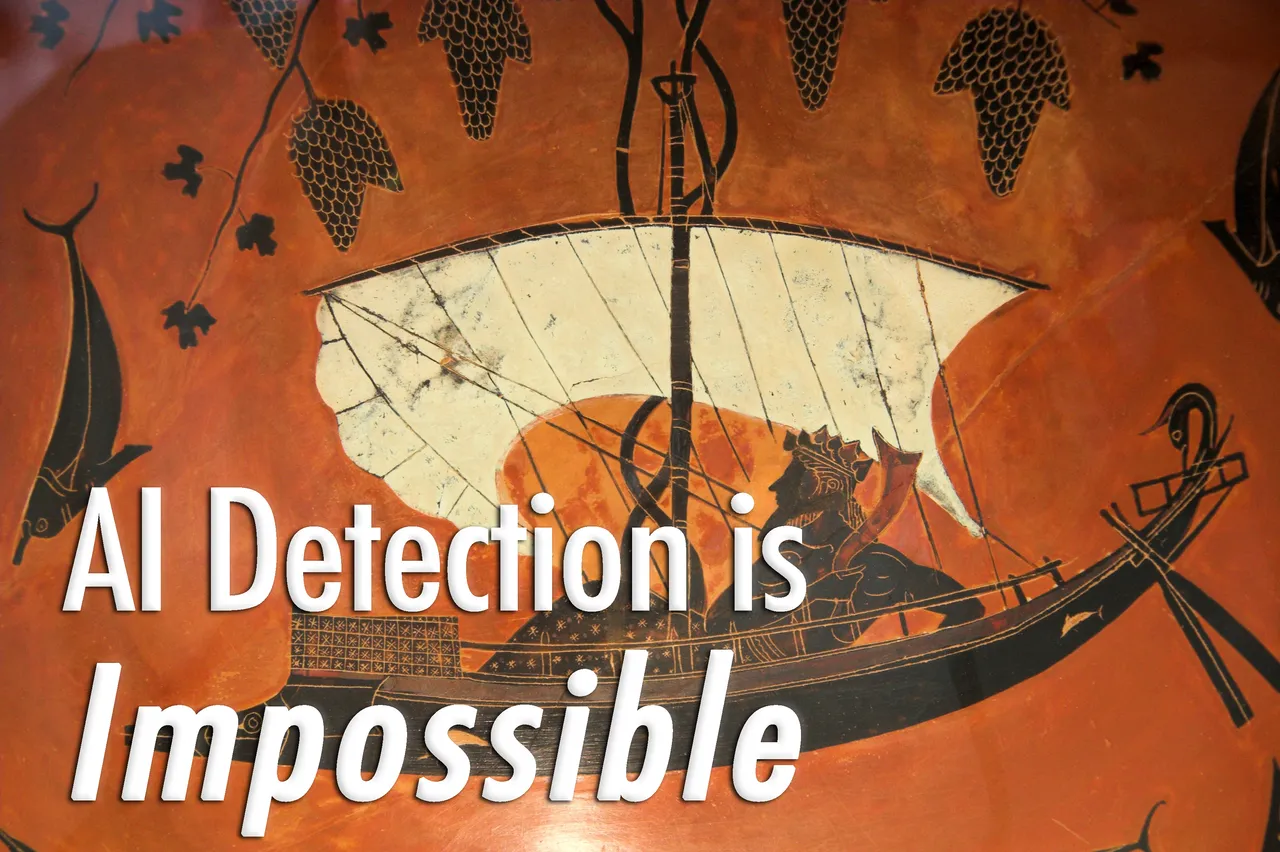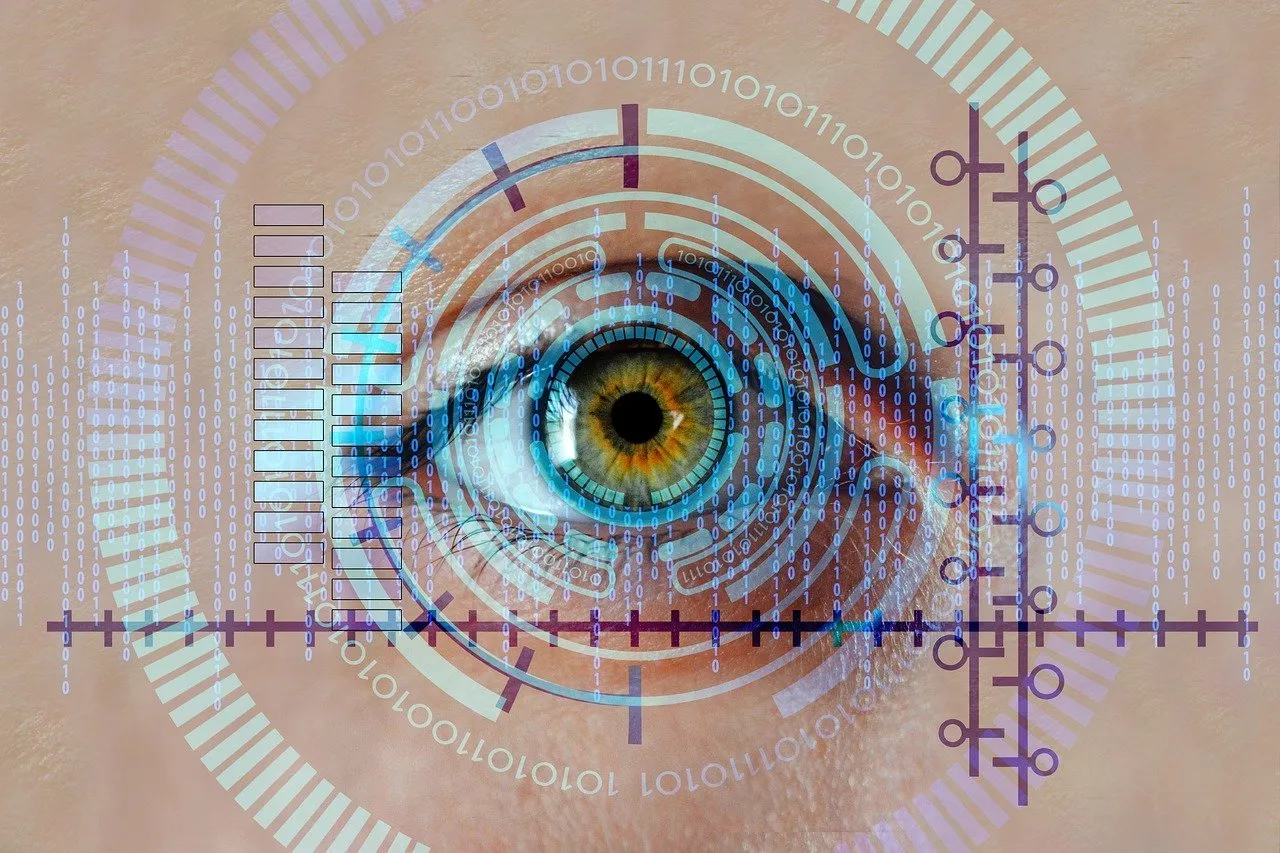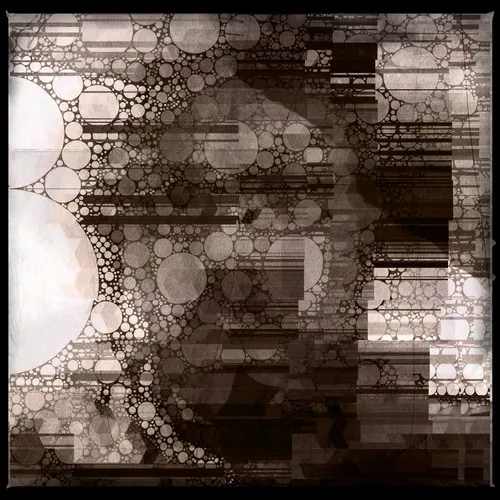
Ah the AI debate. This has been ongoing on Hive for awhile now. It faded but was recently reignited by the recent HiveWatchers brouhaha, itself part of the never-ending fight that reoccurs here on Hive every now and again.
The interesting question that I keep coming back to is, is it possible to detect AI? Let's dive into this question a little.

As some people have pointed out, the OpenAI folks themselves have made available a tool to detect AI content already. A strike against this is it's not very accurate in its detection. This could be for any number of reasons and these reasons don't really matter for our purposes. The question is can this detection be made better or not.
I think this question is meaningless and is taking us in the wrong direction in the AI argument. Why? Because I think detecting AI is going to become so difficult that it will be nearly impossible. It may not be there yet, but it soon will be.

Image by Gerd Altmann from Pixabay
I've used this example before but I think it bears repeating:
I have been writing on the internet since 1996 when I started my first protoblog. On my computer where I've made backup copies of much of what I've written or on the Internet itself, there exists 27 years of my writing. 27 years! That is many thousands of articles of varying length. If I had been compiling this writing in book form, that would be many fair sized books. Hmm... maybe if I had done that I could actually be a published-author making decent money instead of a regular schmo making peanuts online.
But I digress.
Undoubtedly my writing voice has changed a lot over the years. Like all of us, the older I get, the more vocabulary I learn, the more phrases I learn as I read other things, the better my grammar gets, the better I get at explaining things, and so on and so forth. In short, my writing has evolved over the years. I think, however, probably even my oldest writing is still recognizable as my writing.
Now what happens when we gain the ability to train AI on all of that 27 years of writing? The AI can examine it and it can rank my vocabulary, what grammar I use most, what idioms I overuse, what topics do I tend to fall into constantly, and so on. In other words, It can analyze what makes my writing voice my writing voice.
I don't think it's a giant leap to say that if we were to train an AI on all of this data, then the resulting AI would sound a lot like me. I'm going to go further and say the resulting AI would probably sound exactly like me.

Now we can get into some pretty philosophical things here. I mean, if you fed
someone's life into an AI, maybe that AI would start to actually think it was the other person. Who is the real David? Well, obviously I am, the dude who has a body instead of the computer. But the AI would essentially have my mind. It would think it was me.
That would be a good sci-fi story. Actually I'm sure many sci-fi stories have already been written using this very idea. And maybe that's a problem we'll have to deal with someday soon. In fact, just to go off on a tangent, I have read from futurologists who have predicted that our generation—and I'm speaking of Generation X which I would be a member of—our generation will be the first to "live forever". That's in quotes because we won't live forever—we will die—but our descendants will feed all of our information into a computer, all of our photos, all of our writings, if we have diaries all of our diaries, all of the videos of us, and so the AI will essentially become us. Then future descendants will always be able to talk to us and ask us questions. We won't be here, we will be dead, but the AI that is masquerading as us will be so perfect that no one will be able to tell the difference, so perfect in fact that the AI itself will be convinced it is us.

Image by Dimitris Vetsikas from Pixabay
There are hints of the old philosophical problem: the ship of Theseus. If you don't know this problem, it is basically a question of whether an object that has had all of its original parts replaced is still the same object.
Plutarch wrote:
The ship wherein Theseus and the youth of Athens returned from Crete had thirty oars, and was preserved by the Athenians down even to the time of Demetrius Phalereus, for they took away the old planks as they decayed, putting in new and stronger timber in their places, insomuch that this ship became a standing example among the philosophers, for the logical question of things that grow; one side holding that the ship remained the same, and the other contending that it was not the same.
Philosophers have been arguing both sides of this question for a very very long time. You can perhaps see both sides to the debate. It is a new ship, yet it is still the old ship. And of course this is happening in our bodies constantly, as I talked about in this post. Our organs are regenerating themselves constantly, all the atoms in our body are changing, and so we get to the point where after several years where literally no part of our body is the same as it was a few years ago. Are we still us?
Well anyway these are philosophical questions that come to mind when I think of the futurologist prediction I mentioned above. But let's get back to the point: Training AI on our writing.


Image by Kohji Asakawa from Pixabay
What happens when we can train AI on our writing, and so it can adopt our voice perfectly? How will we detect that? Will detection be possible when we get to that point? Detection already seems difficult, but when we get to the point where we can train an AI on our own writing, will even partial detection be possible?
You might say that is far away so we don't have to worry about it for awhile. I would respond by saying I think it's closer than you think. I think we are on the bottom of an S-curve here, and we are about to go vertical in our technology.
ChatGPT took us all by surprise, but the next version of ChatGPT (version 4, to be released soon) will also blow us away. The version after that, which will come even faster, will also blow us away.
The word "the singularity," is overused, but it does fit here. It is where technology is progressing so quickly that we can't keep up anymore, where things are progressing so quickly, we just can't picture it.
I think AI cannot be detected. Right now we can detect it some, but this is a
losing battle. Soon we will not be able to detect it. So we have to figure out how do we deal with this problem if we don't have the ability to detect it.
I have some ideas, but this post is getting kind of long, so we'll deal with that next time. Stay tuned!
(title graphic made by me in Photoshop, using this photo which was released under the Creative Commons )
❦
 |
David LaSpina is an American photographer and translator lost in Japan, trying to capture the beauty of this country one photo at a time and searching for the perfect haiku. |
